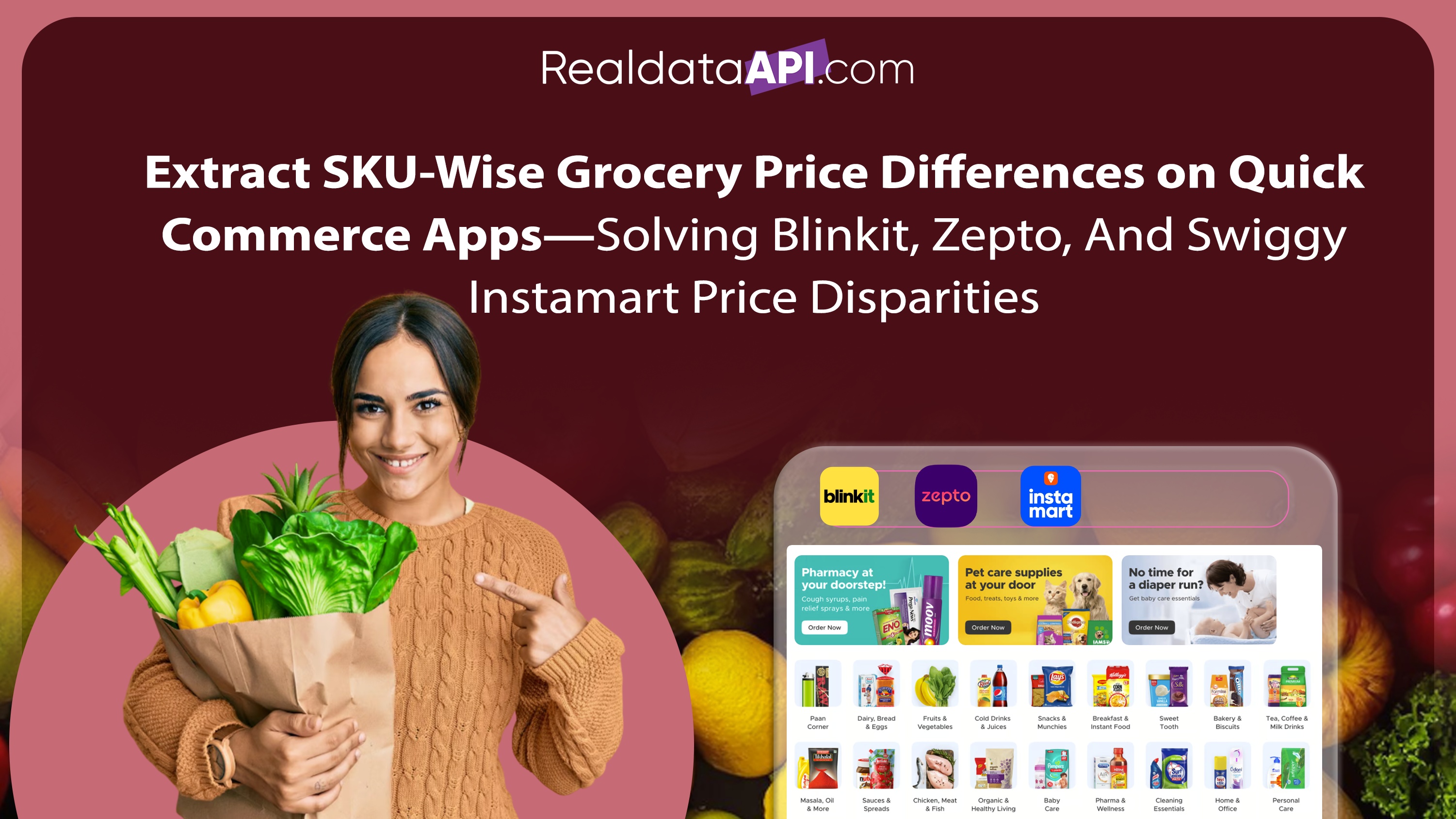
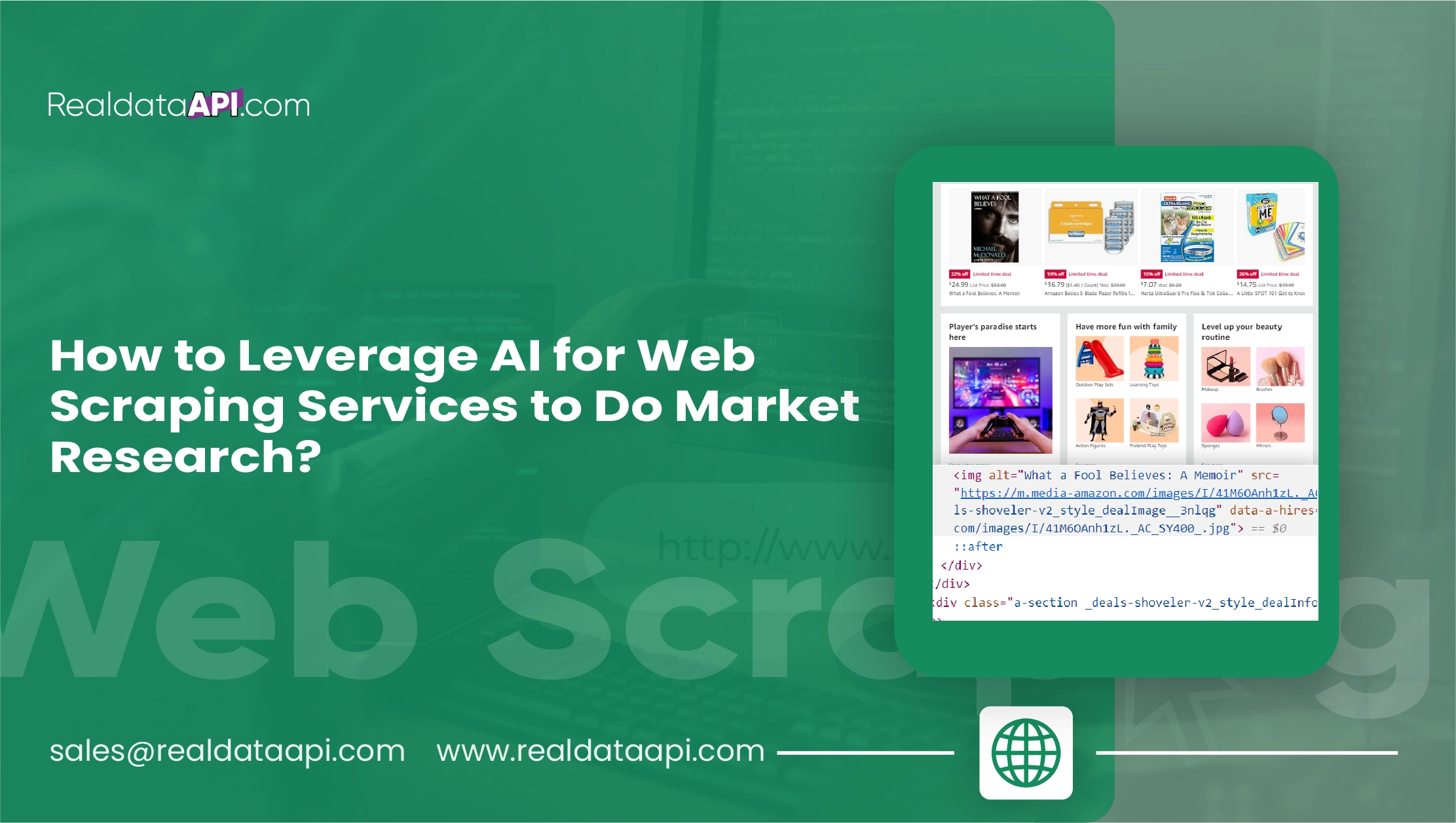
Introduction
In today's digital age, data is the new gold. Companies across various sectors leverage data to gain insights, make informed decisions, and stay ahead of the competition. Web scraping services have long been a popular method for extracting data from websites, but the integration of artificial intelligence (AI) is revolutionizing this field. This comprehensive guide will delve into AI web scraping, how it works, the tools available, and its applications in market research, price comparison, and more.
What is AI Web Scraping?
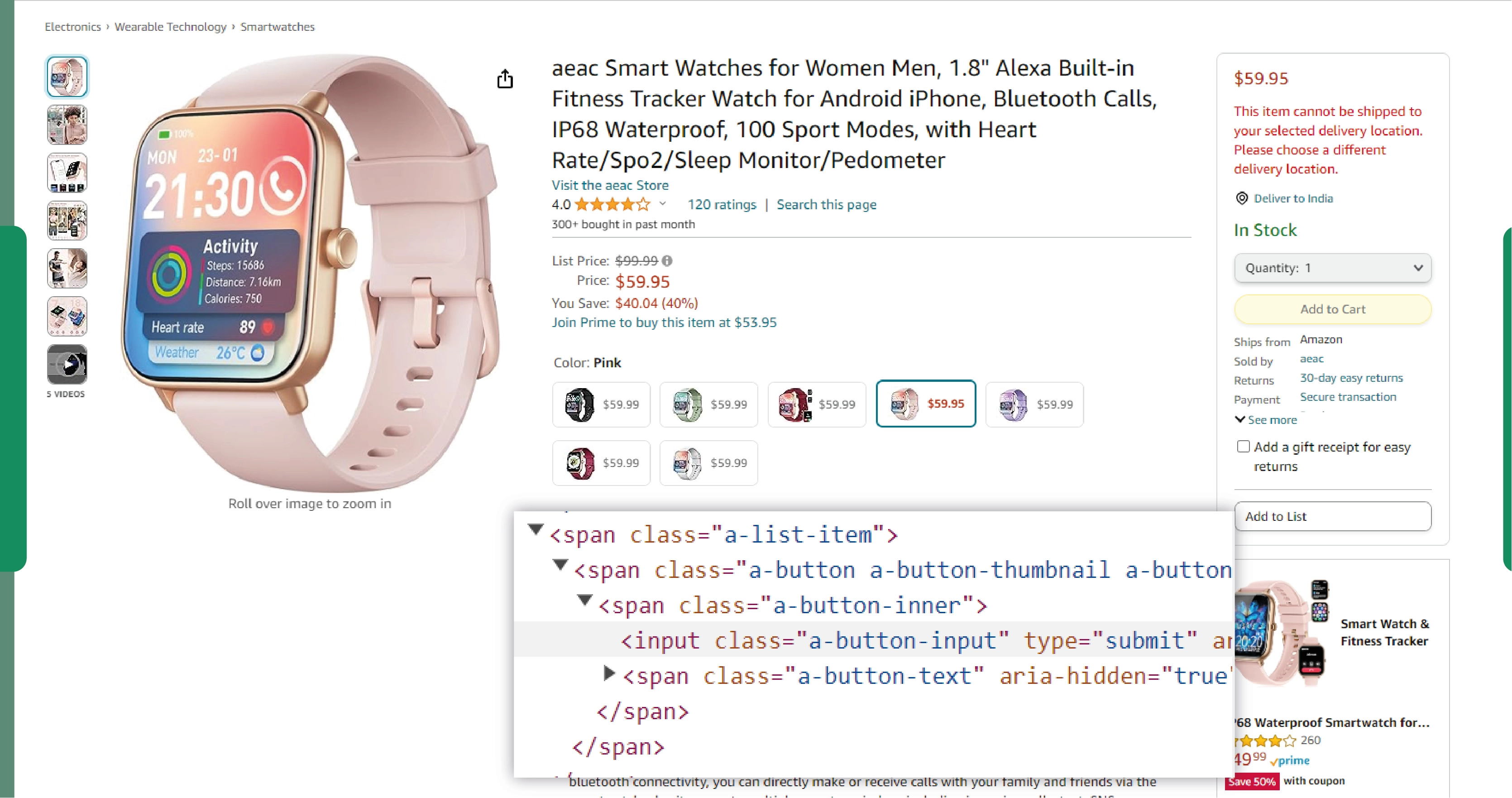
AI web scraping involves using artificial intelligence techniques to automate the process of extracting data from websites. Unlike conventional web scraping, which relies on predefined rules and scripts to collect data, AI web scrapers can adapt and learn from the data they encounter, making the process more efficient and robust.
Conventional Web Scraping vs. AI Web Scraping

Conventional Web Scraping:
Static Rules: Relies on static rules and scripts that must be updated whenever a website changes its structure.
Limited Adaptability: Struggles with dynamic content and complex website layouts.
Manual Intervention: Often requires manual adjustments and oversight to maintain accuracy.
AI Web Scraping:
Machine Learning: Utilizes machine learning algorithms to recognize patterns and adapt to changes in website structures.
Dynamic Handling: Can efficiently handle dynamic content, such as JavaScript-generated data and interactive elements.
Automated Adjustments: Continuously learns and improves, reducing the need for manual intervention.
How to Scrape Web Data Using AI
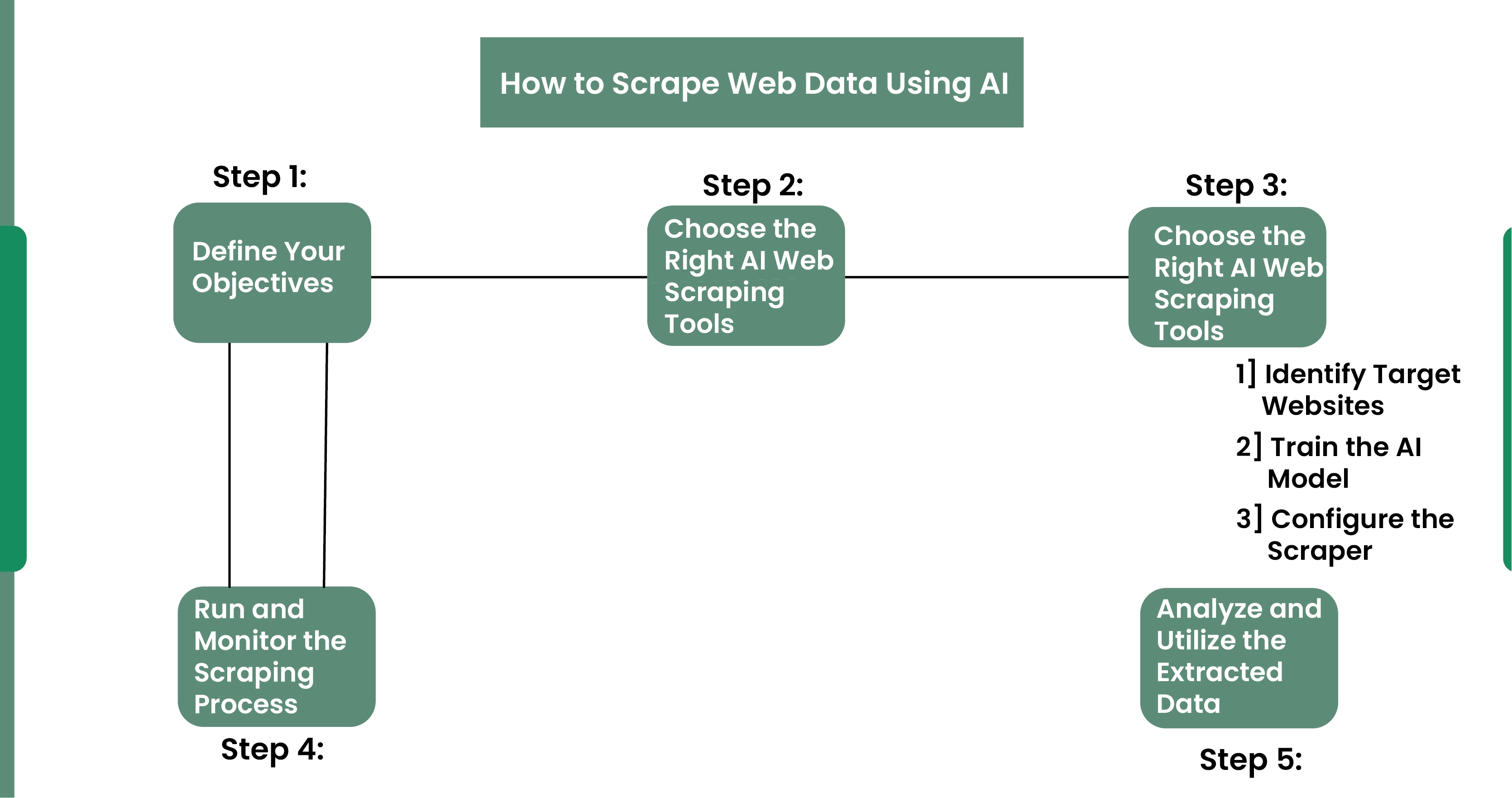
Step 1: Define Your Objectives
Before diving into AI web scraping, it's essential to define your objectives. What kind of data do you need? How will you use this data? Common objectives include market research, price comparison, sentiment analysis, and competitive analysis.
Step 2: Choose the Right AI Web Scraping Tools
Several AI tools for data collection are available, each with unique features and capabilities. Here are some popular AI web scraping tools:
Scrapy + AI Integration:
Scrapy is a robust Python framework for web scraping services. By integrating machine learning libraries like TensorFlow or Scikit-learn, you can enhance Scrapy’s capabilities with AI.
Step 3: Set Up Your AI Web Scraper
Once you've selected the right tool, set up your AI web scraper. Here’s a general outline of the process:
Identify Target Websites:
Identify the websites you want to scrape. Ensure they comply with legal and ethical guidelines for data scraping.
Train the AI Model:
Use the chosen tool to train the AI model. This typically involves pointing out the data points you want to extract, such as product names, prices, descriptions, etc.
Configure the Scraper:
Set up the scraping parameters, such as the frequency of scraping, data storage options, and any required proxies or IP rotation to avoid detection and blocking.
Step 4: Run and Monitor the Scraping Process
Execute your AI web scraper and monitor its performance. Ensure it is accurately extracting the data you need and making adjustments as necessary. AI models often improve over time, so continuous monitoring can help fine-tune the process.
Step 5: Analyze and Utilize the Extracted Data
Once you have the data, it’s time to analyze and utilize it. This might involve cleaning and processing the data, visualizing it for insights, or integrating it into your existing systems for further analysis.
Applications of AI Web Scraping
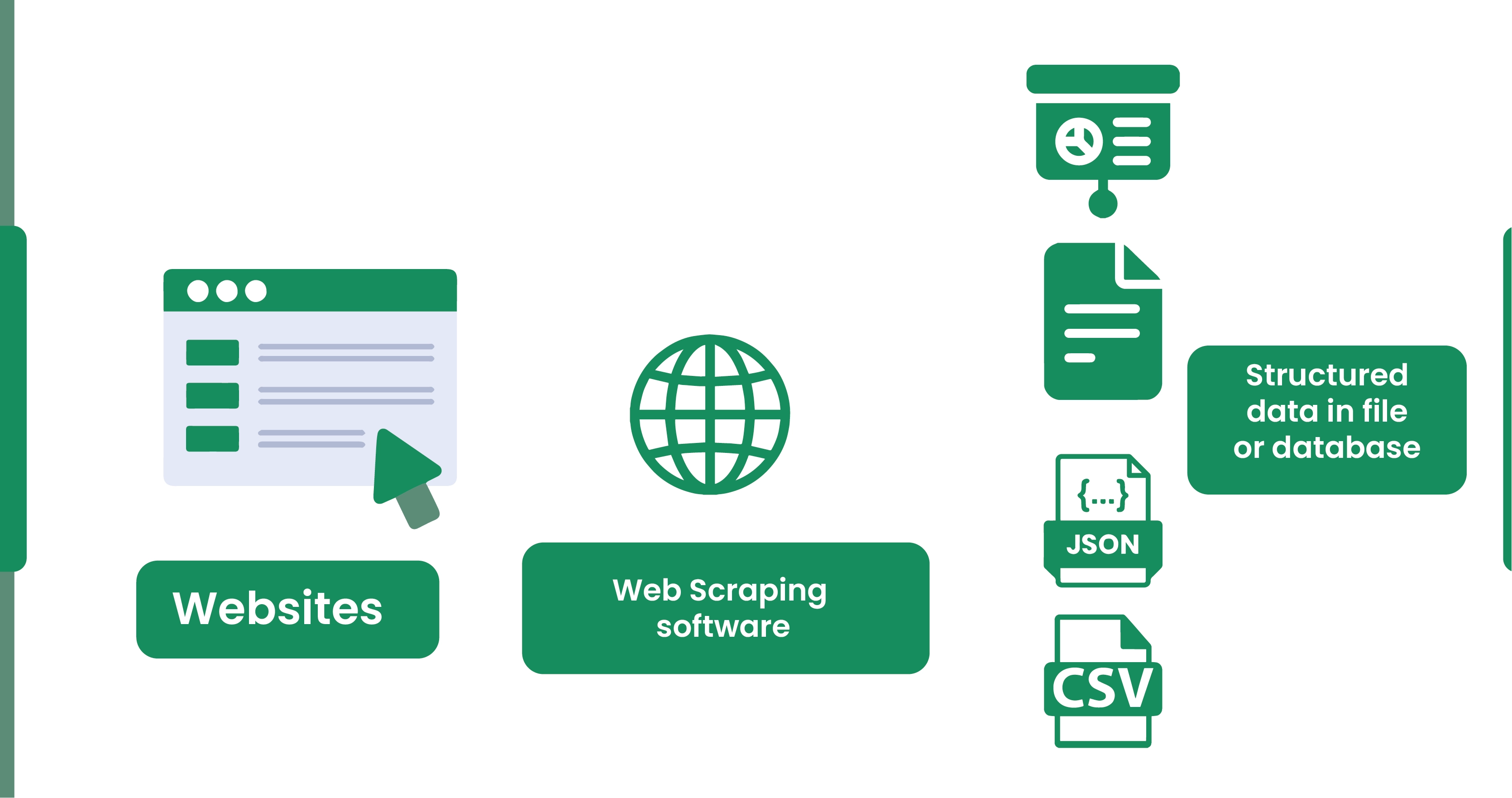
Market Research
AI web scraping is a powerful tool for market research. By collecting data from various sources, businesses can gain insights into market trends, consumer behavior, and competitor strategies. For instance, scraping data from social media, review sites, and news articles can provide a comprehensive view of the market landscape.
Price Comparison
For e-commerce businesses, price comparison is crucial. AI web scrapers can continuously monitor competitor prices and adjust pricing strategies accordingly. This real-time data collection helps businesses stay competitive and attract price-sensitive customers.
Sentiment Analysis
Understanding customer sentiment is vital for any business. By scraping data from reviews, social media, and forums, companies can analyze sentiment to gauge public opinion about their products or services. AI models can classify and interpret this sentiment, providing actionable insights.
Competitive Analysis
AI web scraping can help businesses keep an eye on competitors. By collecting data on competitor products, marketing strategies, and customer feedback, companies can identify strengths and weaknesses and adjust their strategies to gain a competitive edge.
Dynamic Content Handling
AI web scrapers are particularly effective at handling dynamic content. Websites that use JavaScript to load data asynchronously can pose challenges for conventional scrapers. AI tools can navigate these complexities, ensuring comprehensive data extraction.
Future of AI Web Scraping
The future of AI web scraping is poised for remarkable advancements, driven by continuous improvements in artificial intelligence and machine learning technologies. As AI becomes more sophisticated, web scrapers will increasingly be able to handle complex, dynamic web content with greater accuracy and efficiency. Here are some key trends and developments to watch for:
Enhanced Adaptability
AI web scrapers will become more adept at recognizing and adapting to changes in website structures. This adaptability will reduce the need for manual updates to scraping scripts, making the data extraction process more resilient to frequent website modifications.
Natural Language Processing (NLP)
Advancements in NLP will enable AI web scrapers to understand and extract meaningful insights from unstructured text data. This capability is particularly valuable for scraping reviews, comments, and articles, allowing businesses to perform more nuanced sentiment analysis and content categorization.
Real-Time Data Extraction
The demand for real-time data is growing across industries. AI web scrapers will increasingly support real-time data extraction, enabling businesses to monitor and respond to market changes, competitive moves, and consumer behavior instantly.
Ethical and Legal Compliance
Future AI web scrapers will incorporate features to ensure compliance with legal and ethical standards. This includes respecting data privacy laws, adhering to website terms of service, and implementing measures to avoid overloading servers.
Integration with Big Data and Analytics
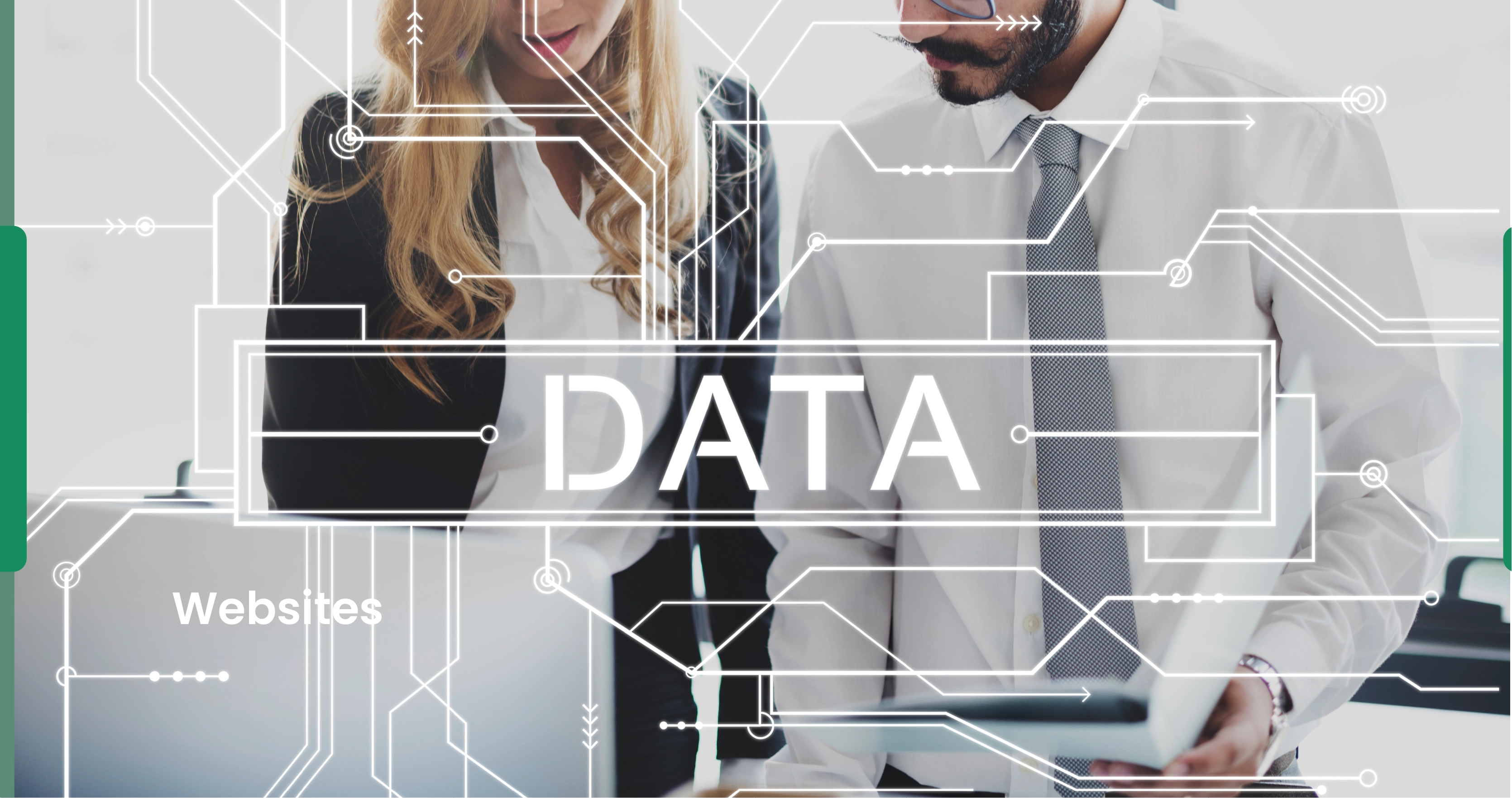
AI web scraping tools will be more seamlessly integrated with big data platforms and advanced analytics tools. This integration will allow businesses to combine scraped data with other data sources, facilitating deeper analysis and more comprehensive insights.Natural language processing (NLP) advancements will enhance the ability to extract and interpret unstructured data, such as text and images, providing richer and more meaningful insights. AI-powered scrapers will also become better at real-time data extraction, crucial for industries that rely on up-to-the-minute information, such as finance and e-commerce.
Furthermore, the integration of AI with other technologies, like cloud computing and big data analytics, will enable more scalable and efficient data collection and processing. This will allow businesses to gather larger datasets and perform more comprehensive analyses.
Ethical and legal considerations will remain critical. Future AI web scraping tools will likely incorporate more sophisticated mechanisms to ensure compliance with data protection regulations and website terms of service.
In summary, AI web scraping will become more robust, adaptable, and intelligent, offering enhanced capabilities for data collection and analysis, which will drive strategic decision-making and business innovation.
AI-Powered Data Enrichment
Beyond scraping, AI can be used to enrich data. For example, scraped product information can be augmented with additional details like customer reviews, ratings, and related products using AI algorithms. This enriched data provides a more comprehensive dataset for analysis and decision-making.
Real-Time Data Extraction
The demand for real-time data is increasing. AI web scrapers are well-suited for this task, as they can continuously monitor websites and update data in real time. This capability is particularly valuable for industries like finance, where timely information is critical.
Conclusion
AI web scraping is transforming how businesses collect and analyze data from the web. By leveraging AI, companies can automate the extraction of valuable insights, improve efficiency, and gain a competitive edge. From market research to price comparison, AI web scrapers offer a range of applications that can drive strategic decisions and business growth.
In this ultimate how-to guide, we’ve explored the fundamentals of AI web scraping, how to set up an AI web scraper, the tools available, and the various applications of this technology. By understanding and implementing these techniques, businesses can harness the power of AI to unlock the full potential of web data.
Whether you are a data scientist, a business analyst, or a developer, integrating AI into your web scraping toolkit can significantly enhance your data collection capabilities and provide deeper insights. As AI technology continues to advance, the possibilities for AI web scraping will only expand, making it an indispensable tool for modern data-driven enterprises.
Ready to take your data collection to the next level? Discover the power of Real Data API and start transforming your business with AI-driven insights today!


